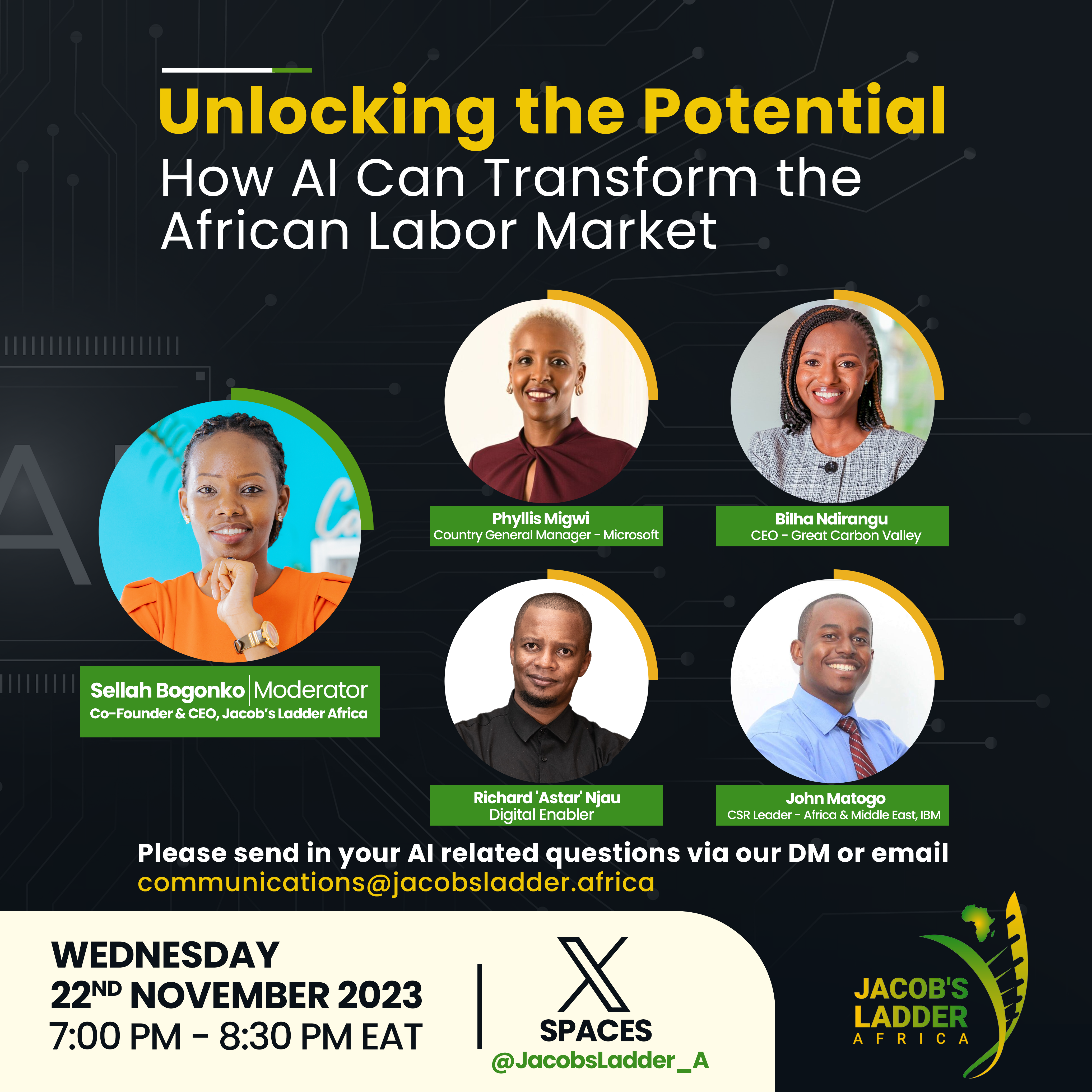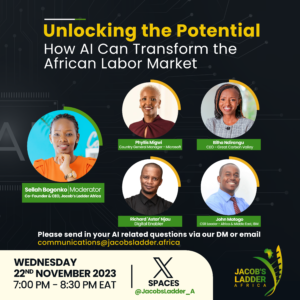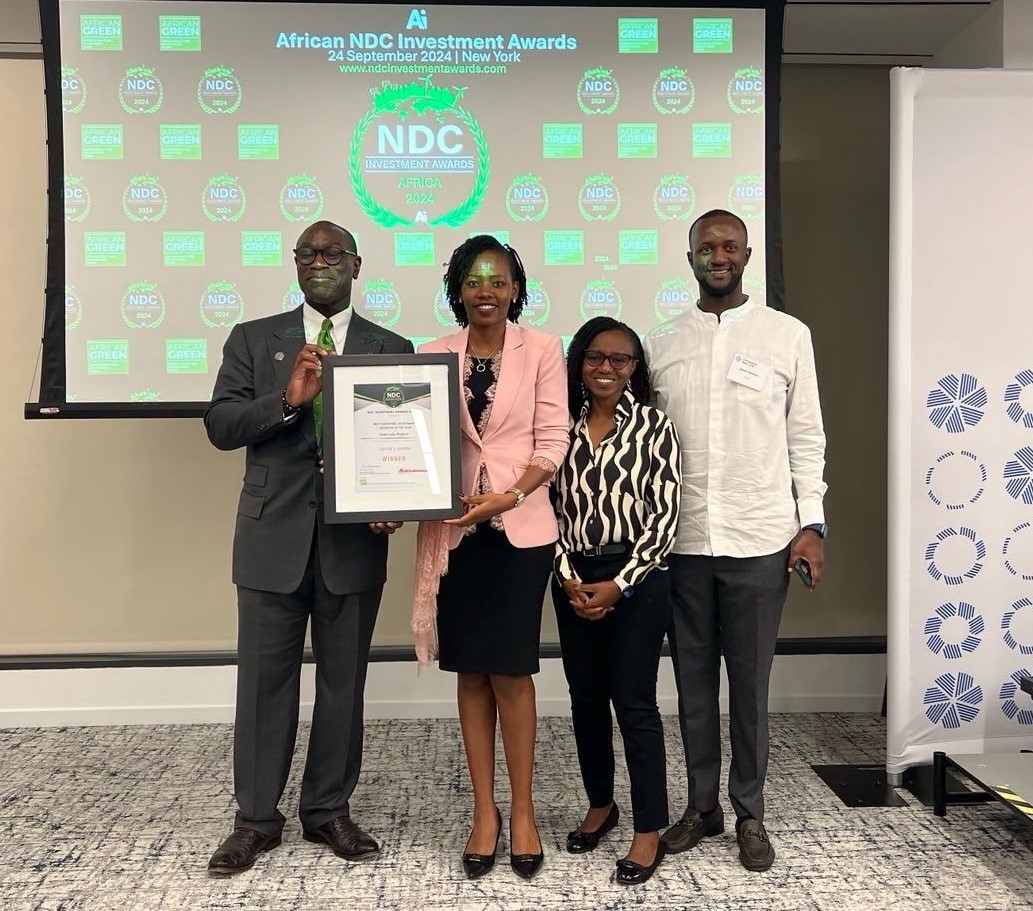AI has great potential to transform the African labour market. On the 22nd of November, JLA hosted an X Space to discuss the future of AI in accelerating the transformation of the African labour market to create green jobs. Sellah Bogonko moderated the panel and was joined by Phyllis Migwi, Country General Manager, Kenya Microsoft, Bilha Ndirangu, CEO Great Carbon Valley, Richard Njau a Digital Enabler and John Matogo the Corporate Social Responsibility Leader for Africa & the Middle East at IBM.
Session highlights
Africa’s youthful population uniquely positions the continent with a ready workforce. While climate change can be leveraged as an avenue to create economic opportunities for the youth, building adequate skills to help young people seize opportunities in the green economy is a critical component to be considered.
How Africa can leverage AI
The loss of jobs to AI ranks among the most prevalent concerns with the increasing adoption of the technology. While AI is likely to cause significant disruption in the labour market, participants in the session agreed that it could also lead to job automation and create more job opportunities. Individuals can position themselves to leverage AI by taking the time to study it in-depth to gain an understanding of latent opportunities.
Building skills for the future
The rapid rate of disruptions in the technology sphere requires agility and creativity in building skills among the youth to better position them for AI-generated job opportunities. Prompt engineering is a skill that everyone who is looking to work with AI has to acquire.
According to Phyllis Migwi, it’s important to keep a pulse on basic skills, while adopting new capabilities that encourage higher levels of productivity. Critical thinking, combined with AI-generated outputs are essential in order to achieve set goals. Regardless of the industry one is in, AI can introduce efficiencies for existing work as well as create new opportunities.
Bilha Ndirangu, CEO of Great Carbon Valley believes that Africans need to take the front seat in global conversations on AI, such as the building of regulatory frameworks, particularly because Africa is part of this development.
In conclusion, AI presents multifaceted opportunities for the African labour market, and now is the time to make the necessary provisions from a capacity building and educational perspective in order to seize its potential.
Click here to listen to the recording.







